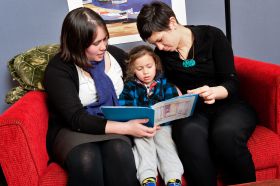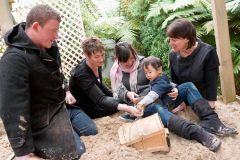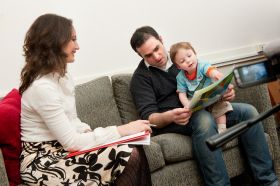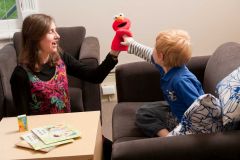As adults, we have an incredible capacity to remember events that happened many, many years ago. How and when do we develop this amazing ability? Even though we all have memories from our childhood, most of us have difficulty remembering experiences that took place before we were
3- or 4-years old. What happens during early childhood that allows us to begin to keep our memories forever? Some researchers have argued that language development may play an important role in allowing us to retain long-lasting memories.
One way in which language is thought to help us retain memories is by giving us the opportunity to engage in conversations that remind us about our past experiences. In particular, we frequently ask each other questions such as, “Do you remember when we went to that restaurant?” that can lead us to recall vivid recollections about the past. Sometimes these recollections are so vivid it feels like we are reliving the experience all over again! Given this, our ability to use these verbal reminders may be the key to helping us retain lifelong memories.
We have recently examined the development of children's ability to use these reminder questions effectively. To do this, children took part in a simple experience and we reminded them about that experience after a delay. In that study, children looked at a unique and brightly coloured picture that was displayed on a video screen. After a week or two, we assessed whether they remembered it. Some children were given a simple reminder question immediately prior to the test (“Do you remember the picture you saw the other day?”) and some children were not. We found that that children as young as 2 years of age were able to use this question to help them remember the picture.
This initial study shows that, at least by the age of 2, children can use another person's questions to recall information about the past. We are currently exploring their ability to do so over longer and longer delays.




